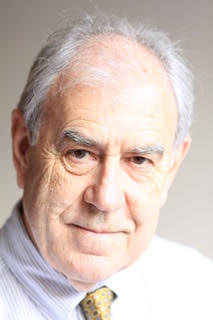RICHARD BUTLER. An Avalanche of Advocates
May 2, 2018
While the US will be without an Ambassador in Canberra for a while it can be forgiven for thinking it will be able to rely, on our own home-grown Alliance advocates.
Last week, I asked, in Pearls and Irritations whether it would matter that the appointment of Admiral Harry Harris as US Ambassador to Australia had been cancelled. Clearly, it may not, for at least two reasons.
First, in spite of the evident disarray in the current management and formulation of US foreign policy, those who shape our policy seem to be ever more resistant to the slightest hint that our being joined at the hip might need some introspection.
And, this is also true of our stolid refusal to make any adjustments to the fact that the President of the US is wildly unfit for his job and seems wilfully bent on courses of action in the wider world, that are: dangerous, destructive of established rules and norms; and, are rejected by so many other countries, including friendly countries.
His relevant staff, have been reduced, in terms of their apparent sobriety of judgment, to one senior person, Defense Secretary, Jim Mattis. How far the spectrum has shifted, in Washington, is reflected in the fact that his military nick-name was, Mad Dog Mattis.
The sources of our policy stance are all around us, home-grown. They lie in: our political parties, think tanks, intelligence Agencies, and, academic institutions, some of which were established for the specific purpose of defending the Alliance, and last but not least, our mainstream media.
No comparable country is experiencing a public discourse as heavily managed as ours, towards ignoring the reality of the challenges to order and stability currently posed by the Trump Administration, and to its dismissal of truth, of facts, as the optimal currency for the consideration of serious issues. The US media and public discourse on these realities is, in fact, far more critical than ours, in spite of the extreme pressures of US patriotism.
In these circumstances, any incoming US Ambassador will face a task no more serious than preaching to the choir, although as noted in my earlier blog, the Ambassador will have the job of husbanding the interests of the US arms industry.
Geoff Rabys compelling commentary on the state of Australia/China relations (Pearls and Irritations, 30th April), described the alignment of forces within relevant Government Departments in Canberra, and our intelligence Agencies, which has come to determine our policy towards China. Foreign Affairs has been effectively sidelined from that structure.
Unusually, Rabys, perspective was reported, more or less faithfully, by mainstream media, including the Murdoch press. This positive development should be acknowledged.
But, the fact that we are under continuing pressure from the US to stand with them against the Chinese threat, as perceived by the US, was not discussed in that media and, presumably, that facilitated the pass given to Rabys analysis, by them. They seemed somewhat more interested in his brief but salient remarks on the Turnbull/Bishop relationship.
Secondly, while the role and influence of the think tanks, pressure groups and the media cant be set aside, but nor can that of the people as voters. The political parties rely on this, as they must.
At present, it is clear that the Conservatives believe they can rely on the militarization of our foreign policy, our unswerving support for the Alliance, as a winning strategy and, unfortunately, Labor seems disposed to absorb much of this.
Foreign policy virtually never determines election results in popular democracies, except in times of crisis. But, the question of when US insistence that we must join them, as a matter of Alliance duty, in conflict with China, might constitute a crisis, is a real one.
The conservatives can be relied upon to insist that we have no alternative but to go all the way with the USA.
Labor could decide to reject that we are obliged to choose between the US and China, a manifestly false choice, which it could explain, intelligibly, to the Australian people. We share a neighbourhood with China. Not everything must be seen in geo-strategic terms, as the neo-imperial US does.
It is not always reliable to discern lessons from past history. They are often skewed for current political purposes. Weve certainly seen much of this in the seemingly endless pageants, with which we have been favoured by our Government since the Centenary of the Gallipoli landings. Some have seen these events and expenditures as a warm-up for our next elections.
If however there are pointers for today, from the wars of the 20th Century, they are best provided by the First World War. There was a relentless insistence that Germany had to be fought to save civilization. The propaganda onslaught was massive, often wildly dishonest and deployed luminaries like Rudyard Kipling, (see Adam Hochshilds remarkable book: To End All Wars).
Diplomacy was, together with truth, the first victim of this, with a horrendous outcome. Its not difficult to see echoes of that period, now, with respect to China.
In suggesting that the ALP should clear its mind on all of this, it must be recognized that it has had its fair share of Alliance advocates. Chief amongst these has been Kim Beazley, but in his new appointment in Western Australia, he may accept that he should stay away from politics.
Todays loyal opposition should draw a distinction between itself and the Government on foreign and security policy, promising an independent Australian policy. To present an identical approach to that of the Government would simply nullify one good reason for voting for it.
Oddly, perhaps the most effective warning about A Dangerous Alliance was a Conservative, the late Malcolm Fraser.
We are an interesting mob.
Richard Butler AC formerly Australian Ambassador to the United Nations, Professor of International Affairs
